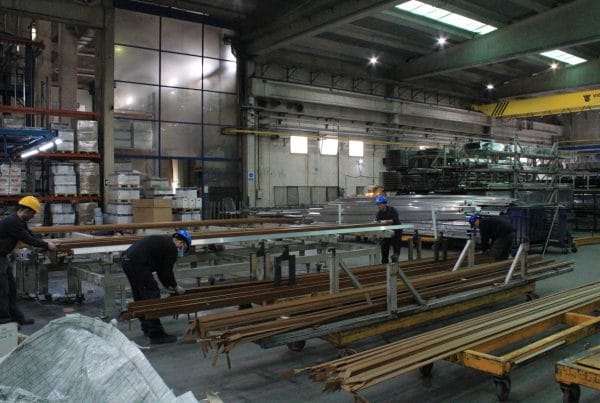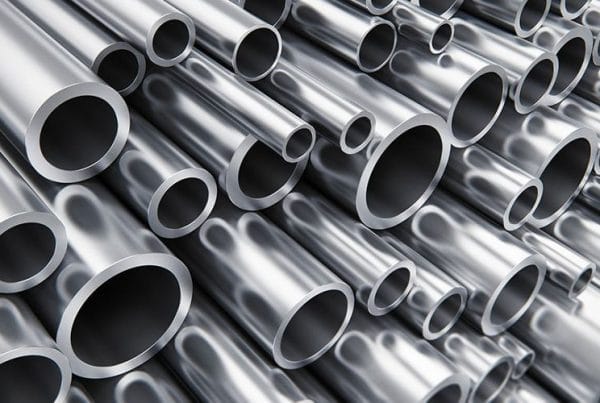- Chinese port bottlenecks threaten to give inflation another boost
The global shipping industry is going through a very turbulent few months. The maritime trade had already been exhausted and hit by the pandemic crises, which were later compounded by inflationary pressures and delivery delays. Well, it now appears to be facing its biggest endurance test yet. The bottleneck at the ports of China, the world's factory.
The story goes back to May, when the port of Yantian, one of China's busiest, announced that it would not accept new containers to export goods in the face of a covid-19 outbreak. The port was supposed to be operational within a few days, but its reopening has been delayed. As the partial closure dragged on, trade routes have become clogged, driving up the freight rates paid to ship goods from one place to another.
Yantian port authorities say they will return to normal by the end of June. Although the port's return to normality seems guaranteed, the damage has already been done, according to Bloomberg. To exemplify this event, it is necessary to go back to the major traffic jam in the Suez Canal in Egypt. It took several weeks for ship schedules and supply chains to recover after the ship that jammed the Suez Canal in March was unblocked. It may now take months for the cargo piling up in southern China to clear, while the fallout spreads to ports around the world.
"The trend is worrying and relentless congestion is becoming a global problem," A.P. Moller-Maersk, the world's largest shipping line by number of containers, said in a statement Thursday.
The situation in southern China is one more "in a series of disasters that have accumulated in the global supply chain," according to Nerijus Poskus, vice president of ocean strategy and carrier development at Flexport, which makes software that helps companies manage their supply chains. He estimates that congestion in Yantian will take six to eight weeks to clear.
Those times will create a critical problem because the disruptions will coincide with the late summer peak demand period in the U.S. and Europe, where retailers and other importers restock warehouses ahead of the year-end holiday shopping rush.
Usually cheap and invisible to businesses and consumers, shipping, which is now more expensive than ever, has become a double-edged threat to the global economy: it acts as a drag on trade and a potential accelerator of inflation.
In the US this Wednesday, the Federal Reserve has already raised its inflation forecasts in part because bottlenecks have formed as supply fails to keep pace with demand.

Drewry Shipping data released Thursday revealed that container rates on several routes continued to rise, reaching nearly seven times the cost of shipping cargo between Rotterdam, the Netherlands, and ports in China than a year ago.
Diverted vessels
While the situation at the Chinese port is improving, there was still an average waiting list of 16 days on Wednesday, according to a statement from Maersk, which has announced it will divert most of its ships elsewhere in June.
But the rerouting by Maersk and other carriers will likely only add to congestion and delays at nearby ports, the statement said. Shipping costs are out of control and driving up prices for goods ranging from coffee to toys.
Even without the blockade living in Suez or delays at ports, the global transportation system would likely be running very close to full capacity. Exports from China and other Asian nations are at record levels, as the US and European economies reopen and other markets such as India buy medical products to help with their ongoing outbreaks.
China's trade boom shows no signs of letting up with exports recording record highs in May, while the third and fourth quarters are usually the most important periods for trade within the year.
"There are bottlenecks in ports around the world because of the covid outbreaks: people are not going to work in the same numbers and are not working at the same speed as before the pandemic," says Bjorn Hojgaard, CEO of Anglo-Eastern Univan Group, a company that manages the operations of a fleet of 700 ships worldwide, ranging from tankers to bulk carriers and container ships.
"Shipping is taking longer to recover than expected a few months ago, but I am hopeful that, going into the fourth quarter of 2021 and the first quarter of 2022, we will see a resumption of activity in many parts of the global economy and certainly a normalization of some of the challenges we face in shipping," the expert sentences.
Via. ElEconomista.com



